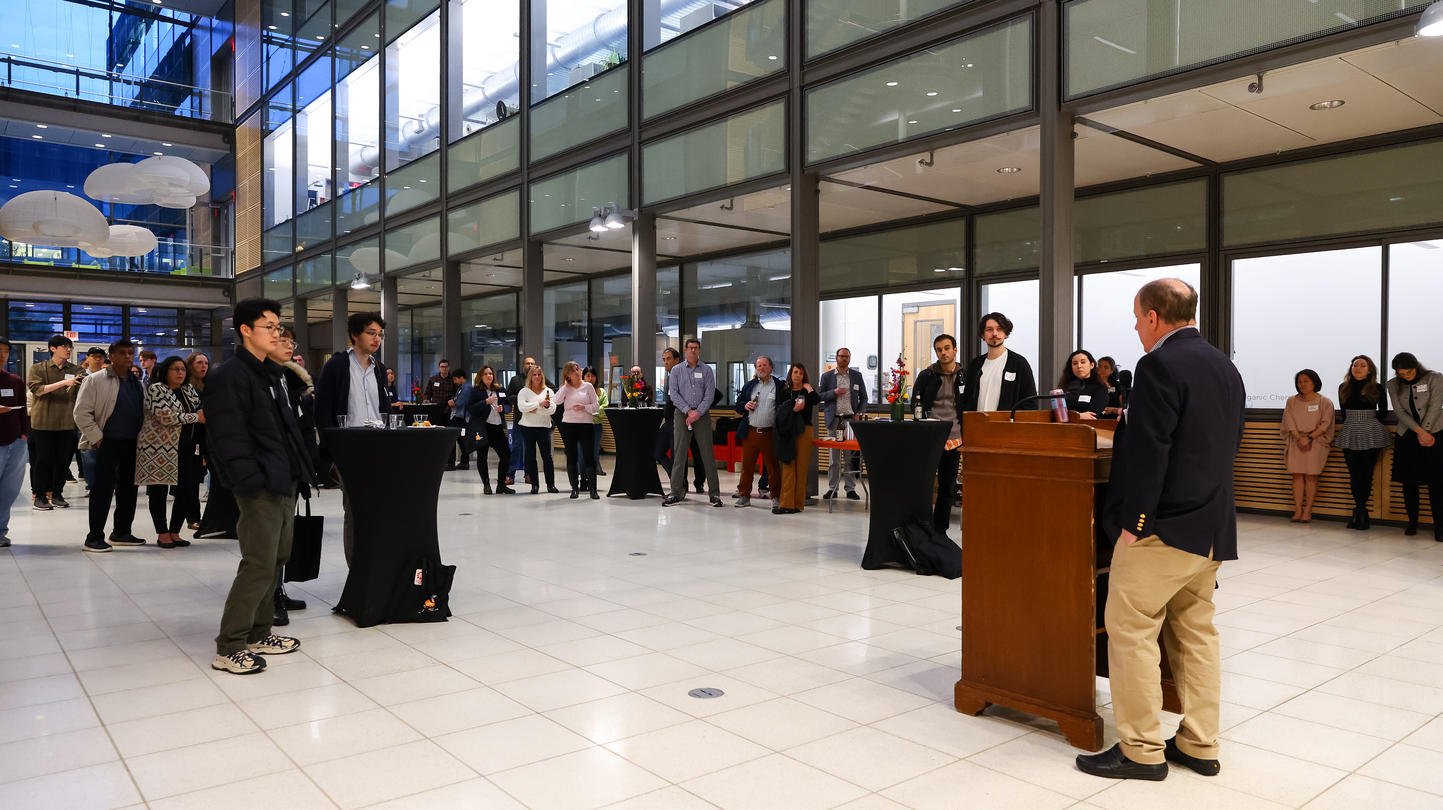PIIRS, Princeton community celebrate Global Japan Lab

On Thursday, Feb. 16, the Global Japan Lab (GJL) invited the Princeton University community to learn more about its multidisciplinary research, teaching and training initiatives on contemporary Japan, in the atrium of the Frick Chemistry Laboratory.
“There are several Japan studies centers around the country, and we wanted this to be something a bit different,” said James Raymo, the Henry Wendt III '55 Professor of East Asian Studies and professor of sociology; Raymo is also the director of GJL. “We want to focus on contemporary Japan today — the issues that are on the front page of Japanese newspapers — and to think about Japan in the future and in a global context.” To this end, GJL promotes and supports research across multiple disciplines, organized under three primary themes: population aging and decline; climate change and natural disasters; and international relations, particularly relations with China. “These issues are of profound importance in Japan and Japan’s responses to related challenges, successful or unsuccessful, may be relevant and informative to other countries,” Raymo said.
GJL is supported by the Princeton Institute for International and Regional Studies (PIIRS) and will receive funds from PIIRS over the next three years to support research, conferences, course development and more. GJL currently has nine core faculty members, including Nobuhiro Kiyotaki, the Harold H. Helm '20 Professor of Economics and Banking, Ryo Morimoto, assistant professor of anthropology, and Amy Borovoy, professor of East Asian studies, as well as five affiliated graduate students from anthropology, East Asian studies, SPIA and sociology. The lab has already outlined a number of scholarly activities for the near future. They include a speaker series related to areas of lab interests; the establishment a pan-East Asia research community in collaboration with PIIRS’ Paul and Marcia Wythes Center on Contemporary China; and a forum for Princeton graduate students to hone their interdisciplinary, Japan-focused research.
GJL will collaborate closely with the UTokyo Center for Contemporary Japanese Studies (TCJS) as part Princeton’s longstanding strategic partnership with the University of Tokyo. “[The partnership] is separate from the Lab, but there are places in which our interests and activities intersect,” Raymo said. For example, the lab’s inaugural speaker was Kikuko Nagayoshi, associate professor at the Institute of Social Sciences at the University of Tokyo, whose research focuses on the integration and assimilation of immigrants to Japan.
